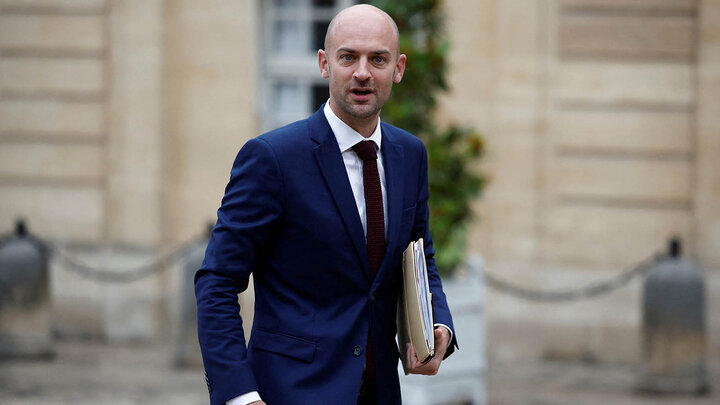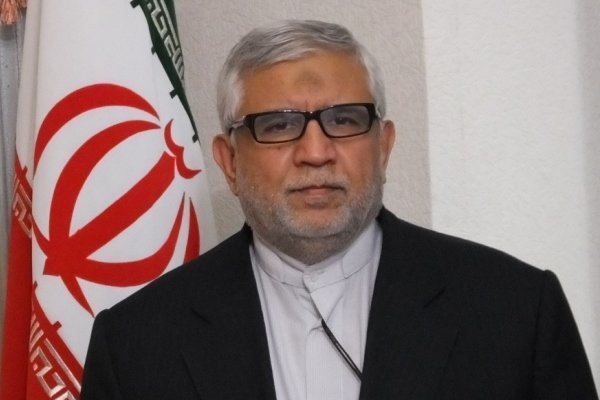While Iran has pursued a diplomatic path with a logical approach, Europe is once again beating the drum of pressure and threats. These positions are being raised while negotiations between Iran and the United States are still ongoing.
According to Ashura News, citing Mehr News Agency, while indirect negotiations between the Islamic Republic of Iran and the United States are underway, the French Foreign Minister has made threatening statements about Europe's readiness to reimpose sanctions on Iran.
This stance once again showed that Europe, by repeating the role of "bad cop", is using the JCPOA as a tool to advance its security concerns instead of supporting the path of diplomacy; behavior that is in clear conflict with Iran's national interests.
Europe's renewed threat; from verbal "support" to a return to the policy of pressure
French Foreign Minister Jean-Noël Barrow announced at the UN Security Council meeting on Monday night (May 28) that if the ongoing talks between Iran and the United States do not yield results and what he called "European security interests" are not guaranteed, Paris and the other members of the European Troika (Germany and the UK) "will not hesitate for a moment" in reimposing sanctions.

These words are being uttered in a situation where three rounds of indirect talks aimed at reducing tensions and rebuilding the nuclear agreement between Tehran and Washington have been held, and the Islamic Republic’s will for diplomatic solutions has been repeatedly emphasized. However, Europe has once again ignored the principle of “commitment for commitment” and has acted from a position of pressure.
The trigger mechanism: a political tool or a threat to regional security?
The trigger mechanism, which if activated could lead to the reinstatement of all Security Council sanctions, is a tool that Europe has repeatedly used tactically to pressure Iran. While the Islamic Republic has repeatedly called on the other side to fulfill its responsibilities in recent years, while adhering to its JCPOA commitments, the European troika has effectively placed itself in an accusatory position instead of playing the role of a neutral mediator.
Such an approach not only does not help resolve the crisis, but also directly threatens Iran’s economic and political interests; especially since Europe has once again threatened to permanently block Iran’s access to technology, markets, and investment if sanctions are reimposed.
Is Europe a diplomatic partner or a tool for Washington’s pressure?
In Tehran’s view, what is being heard today from Paris, London, and Berlin is seriously at odds with the Europeans’ claim of independence from American policies. The experience of the United States’ unilateral withdrawal from the JCPOA and the inaction of the three European countries in the face of it has shown that Europe does not have an independent will to maintain the agreement.
Now, while Iran is on the path of diplomatic talks with the aim of protecting people’s rights and national interests, new threats from Paris show that Europe still insists on maintaining the pressure structure instead of building trust.
Iran’s national interests; The unbreakable principle in any possible agreement
The Islamic Republic of Iran has repeatedly stated that it is ready for a nuclear agreement only if economic benefits are guaranteed, sanctions are lifted in practice, and non-repetition of non-compliance is avoided. Pressure through threats, a trigger mechanism, or renewed sanctions will not only not help, but will also destroy the remaining spaces for dialogue.
Tehran has repeatedly conveyed its clear message to the European parties from official platforms: any agreement without considering the interests of the Iranian nation will be merely a temporary and fragile agreement.
Europe in the final test of diplomatic credibility
As the JCPOA expires in October, the European side faces an important choice: continuing the path of diplomacy based on mutual respect, or returning to ineffective policies of pressure and threats. Any decision that Europe makes will affect the diplomatic position of these countries in regional and global equations.
The gap between Washington and Europe in the path of negotiations; Tehran at the center of gravity of nuclear equations
With the increase in diplomatic movements between Tehran and Washington, signs of a difference in approach between the United States and three European countries (France, Britain, Germany) have emerged; a difference that goes beyond diplomatic tactics and is rooted in a different view of Iran’s role in regional and nuclear equations.
While the United States is gradually pursuing indirect negotiations with Iran with a less aggressive approach, European officials have adopted tough positions in recent weeks. The most recent example is the frank words of French Foreign Minister Jean-Noël Barrow at the Security Council meeting, which was mentioned at the beginning of the report.
However, what is less addressed among the threats and diplomatic movements of the West is Iran’s strategic and growing position in the current structure of regional power. Today, the West is clearly warning about the growth of Iran’s defense capabilities, deterrent capacities, and technical advances in the nuclear field.
This shift in balance is not the result of mere political bargaining, but rather the result of effective strategies in the field of national power; strategies that, according to many analysts, have made Tehran a determining factor in the negotiations.
By emphasizing the principles of defense and preserving national interests, the Islamic Republic of Iran has shown that it has taken the path of active and intelligent resistance in the face of threats and pressure, rather than retreating. Iran’s reaction to the dual approaches of the West, which promotes “diplomacy” in words and “sanctions” in practice, could determine the path forward in future interactions.
Pressures on negotiations increase as the talks progress / European interference in the negotiations
Mohsen Pak-Ayin, a foreign policy expert, in an interview with Mehr, referring to the interference of European countries and the Zionist regime in the Iran-US negotiations process, stated: The main opponent of the negotiations between Iran and the United States is the Zionist regime, which does not see reaching an agreement in any way in its interests. This regime has started its political activities through the US Congress and the European Parliament, both of which have a Zionist lobby.
He continued: "The Zionist regime is trying to influence the process of negotiations between Iran and the US by threatening and intimidating them. European countries also want to use this opportunity and announce their threats so that the US can use this pressure atmosphere and gain maximum points."

The foreign policy expert stated: All officials unanimously announced that they will not accept any issue under pressure and that the negotiations may encounter difficulties. Iran has clear positions and will not deviate from its declared positions.
Pak Ain emphasized: If Trump can manage the opponents of the success of the negotiations, an agreement is possible.
He continued: What the officials raised is hope for the future. The fact that the parties have entered into details and are pursuing technical discussions indicates the will of the two countries.
The foreign policy expert stated: The more progress we make in the negotiations, the more threats and pressures from Israel and European countries will increase.
He concluded by noting: According to the officials, any move by the Zionist regime will definitely be met with a powerful response from Iran. Along with active diplomacy, our armed forces are also ready to confront any aggression.


Post a comment